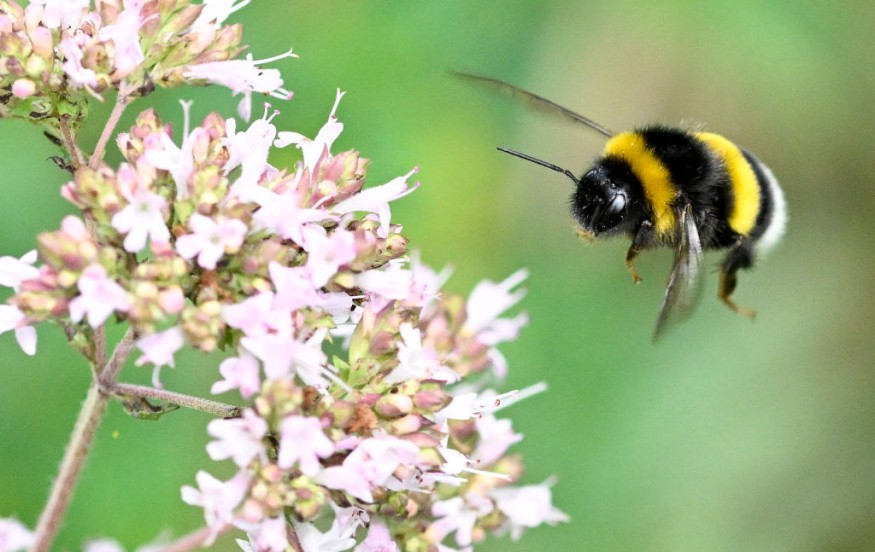The latest report raised concerns about the effects of intense heat on the population of bumblebees, which is crucial for the environment and food security.
Bumblebees might look small, but they play a significant role on the planet. According to recent reports, bumblebees are important pollinators that help crops and flowering plants. They can also help to ensure ecosystem health and food production.
In addition, bumblebees sustain and promote biodiversity, as many plans depend on them. It can benefit not only animals but also human livelihood and agriculture.
In the United States, there are about 49 species of bumblebees, according to a report. They are considered one of the common pollinators in North America.
Soaring Temperatures and Impacts on Bumblebees

Soaring temperatures pose a signficant threat to many species. Temperature fluctuations are challenging, and animals, including bumblebees, can likely struggle to survive.
Researchers from the University of Guelph studied the potential vulnerability of bumblebees to intense heat. The findings were published in Frontiers. Understanding the impacts on bumblebees is essential for conservation and protection plans.
The report warns that the intense heat exceeded the optimal range for bumblebees. While the species can adapt and undergo thermoregulation, soaring temperatures can threaten the hives, as temps reach 89.7 degrees Fahrenheit.
According to a study, Professor Peter Kevan explains the potential brood and nest overheating due to scorching heat. Bumblebees can likely suffer when the heat increases or reaches above 35 degrees Celcius.
In addition to hotter temperatures, the report emphasizes that bumblebees have suffered from the widespread use of pesticides and reduced wildflower availability.
Also Read : Can Honeybees Adapt? New Research Examines the Resilience of Pollinators in a Changing World
Other Ways Climate Change Affects Bees
Climate change has widespread impacts on many species due to changing weather conditions and extreme weather events. While other animals can adapt, the situation is different for bee populations.
Recent reports reveal that climate change can potentially alter the scents of plants, which is important for many bees. Plants can become more stressed due to climate change, causing a chance of their scents.
In addition, it can lead to widespread habitat loss, and bees could struggle to find possible food. Most bees stay in specific habitats, and the degradation can devastate their population.
The report also highlights that it could result in a mismatch in seasonal timing, affecting seed production and food shortages.
As bees are crucial for plants, flowers, humans, and animals, their decline in numbers has significant effects, particularly on biodiversity and food security.
The mitigation of climate change or warming trends is essential for bumblebees and can save them from threats of extinction. Additionally, continuous monitoring efforts are helpful to track down alarming risks to their populations.
Related Article : Bumblebees Show Resistance to Common Pesticides in Foraging Flights
For more similar, don't forget to follow Nature World News
© 2025 NatureWorldNews.com All rights reserved. Do not reproduce without permission.





